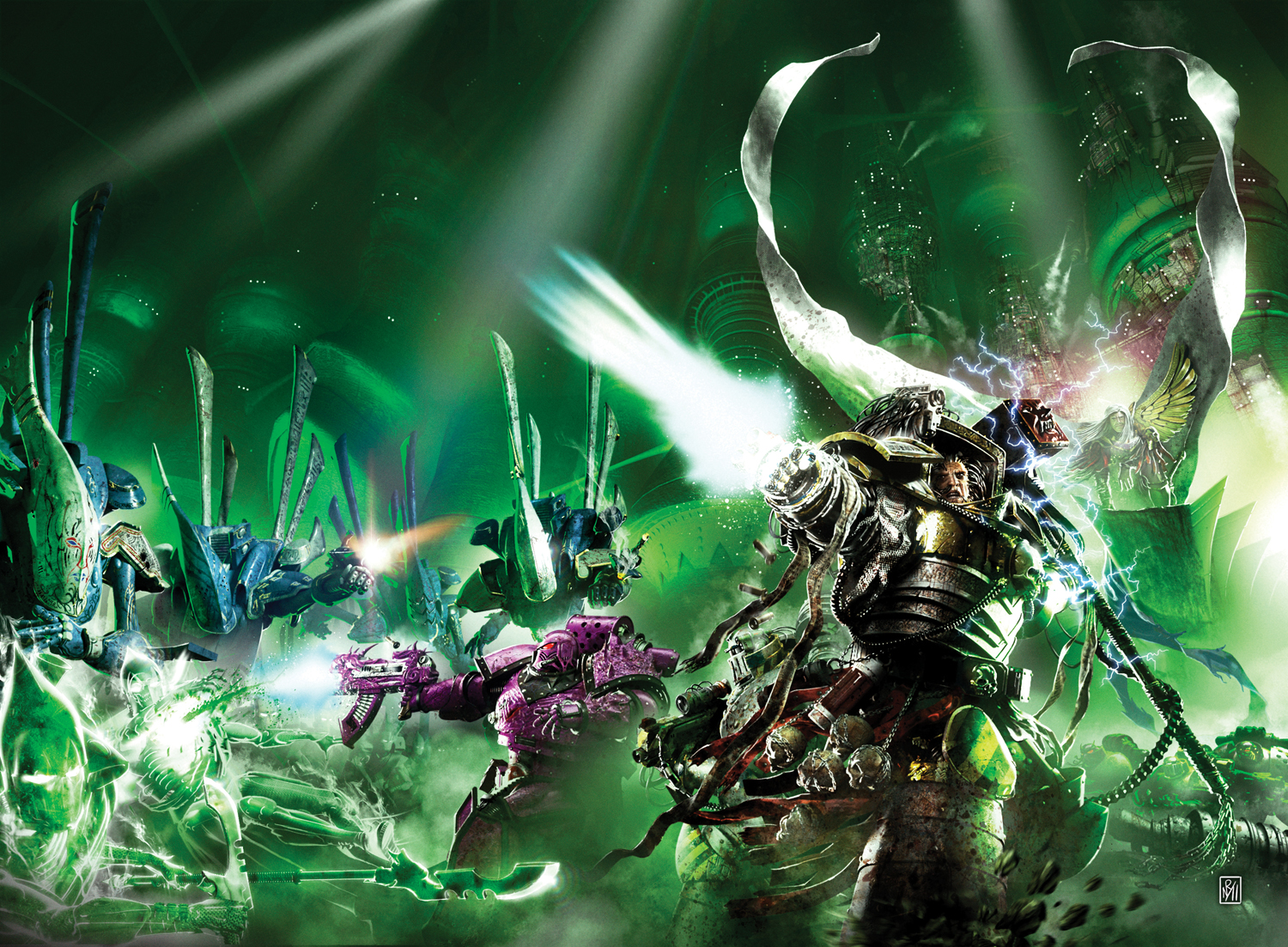
Having driven back the orc invaders, Sigmar unites the tribes of men and founds the Empire. The fledgling empire grows, but its prosperity is not assured. The lands are still wild and untamed, and many enemies lurk in the forests and the mountains. When a Chaos invasion sweeps down from Norsca, the ensuing conflict tests the abilities of Sigmar and his chieftains to the utmost.
Writer’s Commentary
With Empire, I was freed from the stories told in The Life of Sigmar, and I was free to invent my own stories for the newly crowned Emperor. I’d been looking forward to getting back to the Empire for some time, as I had lots of ideas for where to take the story – especially since we now knew it was going to be (at least) three books. This opened up the scale of the storytelling and allowed me a certain narrative freedom to explore the world at a pace I liked.
With the ending of Heldenhammer, I knew I needed to explore what it meant to have won an Empire. You’ve got it, now you have to hold onto it. Just winning it was the easy part. I likened the trilogy, as we were calling it now, to the three ages of Man. Heldenhammer had been the Youngster; full of brash youthfulness, eager and optimism. A sense of beginnings, new things and unlimited possibility infused every page. Now that had all been realised and I envisaged Empire as the Middle Age period, where many of the characters were starting to get older, get married, have children and have a sense of their own mortality. Wolfgart in particular embodied this for me, as my girlfriend was pregnant at the time, and that had given me a shift in perception. Where Redwane embodied what Wolfgart had once been, he now had to be the man of authority, the figure of responsibility – which was an unusual place for him to be.
Even Redwane, as they approach the lair of the necromancer feels that touch of mortality, and this sense of impending doom carries through to the end of the book, where it does indeed portend the end for one of the characters. Here we see the realisation that this Empire isn’t going to be built without loss.
Other sections of Empire gave me the opportunity to flesh out areas of the Empire we hadn’t seen in great detail in the first book, or to visit characters we hadn’t seen before. All of which gave added depth and flavour to the Emperor’s lands. Some of these we spent a bit of time with, others were touched on only lightly – as I knew I was going back there in the third book. There was an episodic feel to portions of the book, but that was wholly intentional, as it recalled the early Howard tales, and allowed me to build up the necessary ingredients that would bubble over in following tales – the entire Morath arc is necessary build up to events of God King, as is the (apparently) wrong location of Marius’s city. Trust me, it’s not wrong – as you’ll see later on. When you look at the three books as a whole, and look at them as one story told over three books, they’ll run together in a way that feels very natural. And where Heldenhammer was Youth, and Empire Middle Age, God King would be the Old Man, where death is very near and you can feel its icy breath on the back of your neck…
